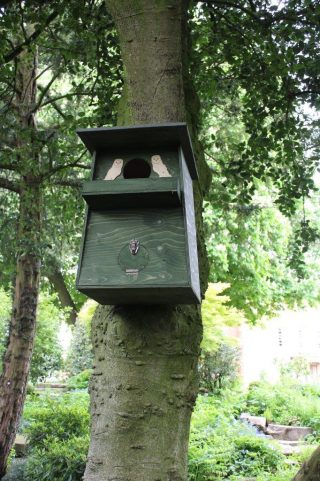Vole Wars
As gardeners we suffer alongside our favourite plants when the get attacked by pests and diseases. It is an eternal struggle to find ways to protect our wards from damage while protecting ‘innocent’ bystanders and the environment in general.
Nature has its own way of dealing with pests and diseases, and at Morton Hall, we are trying to harness this as best we can to reduce the need to use chemicals. Encouraging beneficial insects and predators into the garden is one way of dealing with pest problems. For example, ladybirds and ladybird larvae prey on aphids on a range of different plants and frogs can help to protect vegetables and ornamentals from damage by slugs and snails. Providing suitable habitats for these predators is therefore essential for the effective control of the garden pests.
Most recently, we have taken this approach when dealing with a vole problem in the Rockery and Stroll Gardens.
When digging and weeding in our woodland gardens we often find evidence of vole holes and runs just below the soil surface. This is especially evident in March when the voles take a particular liking to the fresh green, soft emerging foliage of the Pachyphragma macrophyllum throughout the Stroll Garden and Rockery. However, when testing our irrigation system this spring, we discovered that the voles had also taken a liking to the pipes running through the beds! The pipes had been chewed so badly that they had become a series of fountains. A whole section of the system had to be replaced which took a lot of time and materials. Having previously tried in vain to deter the voles with our universal agent chili powder, grease guns which cause a very unpleasant smell of burnt oil and life traps plus deportation into our woodlands, we now had to turn to an unlikely ally!
Owls, particularly barn owls and tawny owls, prey on voles and there are owls present across the Morton Hall estate. To encourage them to move into the Stroll Garden and Rockery we consulted Roy Fowler from the Worcester Barn Owl Conservation Group and commissioned a series of owl nesting boxes to be installed onto our larger trees.

We hope that in time owls will make their home here and in doing so will help to keep the vole population in check and protect our irrigation pipe and tender plants from further damage.
